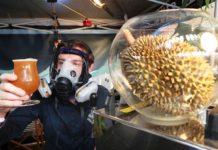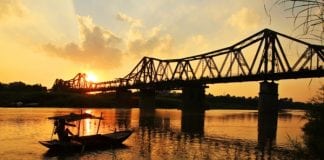
Underwater divers in plastic-choked waters off the coast of Thailand snip through discarded nets tangled around a reef – a new initiative helping protect marine life and aiding the fight against the coronavirus.
The “ghost nets” discarded from the country’s lucrative fishing industry are a deadly source of plastic pollution, ensnaring turtles and cutting into delicate coral beds.
Left unattended, “they could stay adrift for decades, either entrapping or becoming the food of marine animals”, says Ms Ingpat Pakchairatchakul of the London-based Environmental Justice Foundation.
Ms Ingpat was speaking to Agence France-Presse during a recent boat trip off the coast of Chonburi province, as a team of more than 30 divers hacked away at stubborn threads enveloping a reef 27m below the vessel.
She is part of Net Free Seas, a project that collects used nets and turns them into new plastic products – in this case meeting the burgeoning demand for protective gear such as face shields to guard against Covid-19.
The project aims to prove that protecting sea creatures can be commercially viable in Thailand, one of the world’s biggest producers of ocean waste.
Nearly two dozen dead or injured large marine animals found beached on Thailand’s shores each year are victims of discarded nets, according to Dr Chaturathep Khowinthawong, director of the kingdom’s marine park management agency.
“More than 70 per cent of them are injured from the ghost nets and have cuts deep into their bodies,” he says. “Once they get stuck, the chance of survival is less than 10 per cent.”
Net Free Seas has salvaged 15 tonnes of waste netting from sea waters in its first year of operation.
That accounts for a tiny fraction of the 640,000 tonnes of lost and discarded fishing gear that the United Nations Food and Agriculture Organisation says finds its way into the oceans annually.
The scheme, though, has met enthusiastic support from local fishing communities.
“It’s a win-win situation,” says fisherman Somporn Pantumas, 59, from seaside Rayong city.
“The fishing community gets to have another source of income, the beach and the sea are clean and the fishermen find a sense of camaraderie.” – AFP









































